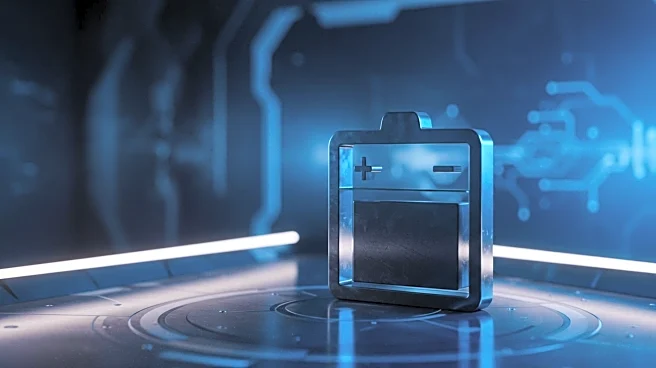What's Happening?
Western Nevada College (WNC) has been awarded $599,999 by the Governor's Office of Economic Development to establish a workforce training hub at its Fernley campus. This initiative aims to support the 'lithium loop' industry, which involves the local mining, production, and recycling of lithium. The hub will focus on training a workforce for the recycling stage, addressing the growing need for skilled workers in battery recycling and lithium extraction. The funding is part of a broader effort to expand Career Technical Education (CTE) in Nevada, with other institutions like Great Basin College and the College of Southern Nevada also receiving substantial grants for similar initiatives.
Why It's Important?
The establishment of a lithium recycling workforce training hub at WNC is significant for several reasons. It supports the burgeoning lithium industry in Northern Nevada, which is crucial for the production and recycling of batteries, including those used in Tesla products. This initiative aligns with the state's economic development goals by creating job opportunities that require education beyond high school but below a bachelor's degree. It also reflects a national trend towards expanding CTE programs to meet workforce demands more efficiently. The development of such hubs can enhance local economies by providing skilled labor for emerging industries, thereby fostering economic growth and sustainability.
What's Next?
The next steps involve the implementation of the training programs at WNC's Fernley campus, which will focus on equipping students with the necessary skills for the lithium recycling industry. As the program develops, it is expected to attract more students interested in technical careers, thereby increasing the workforce available for the lithium loop. Additionally, the success of this initiative could lead to further investments in similar programs across Nevada, potentially influencing educational and economic policies at the state level. Stakeholders, including industry leaders and educational institutions, will likely monitor the program's progress and outcomes closely.
Beyond the Headlines
The initiative at WNC could have broader implications for environmental sustainability. By focusing on lithium recycling, the program supports efforts to reduce waste and promote the reuse of materials, which is crucial in addressing environmental concerns associated with battery production. Furthermore, the program may inspire similar educational models in other states, contributing to a nationwide shift towards sustainable industry practices. The ethical dimension of promoting recycling and reducing environmental impact could become a key aspect of workforce training in the future.










